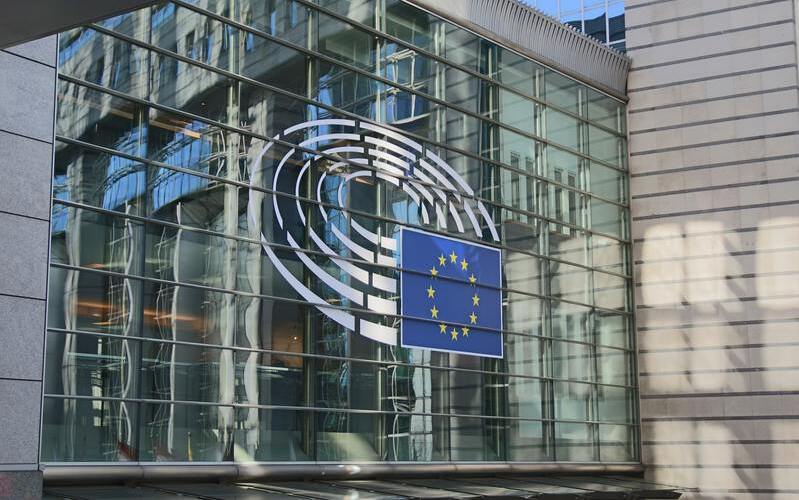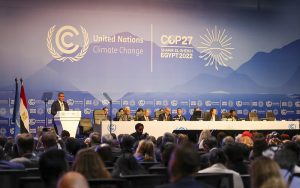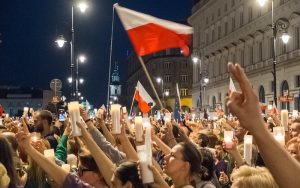Corruption as a global challenge – What is it, and how is it negatively impacting political and social life
Corruption is still a global challenge nowadays that affects us all. It cannot only be found in the so-called “global south” but is also widespread in Europe and North America alike. As argued by Holmes (2015), “Whether in the developing world, transition countries or the developed world, more and more citizens are becoming aware of the serious negative effects of corruption (…)” (Holmes, 2015: 18).
Corruption challenges societies in multiple ways: it increases inequality, undermines democratic institutions and the rule of law, and impedes countries’ human and economic development. Robinson (1998) defines corruption as a “particular concern for developing countries”. It “undermines economic growth, discourages foreign investment and reduces the resources available for infrastructure, public services and anti-poverty programmes” (Robinson, 1998: 2). It furthermore “may undermine political institutions”, reduce “the effectiveness of aid-funded development projects and weakens public support for development assistance in donor countries” (Ibid.).
Public resentment against corrupt authorities may also result in civil unrest and mass protests. It, therefore, not only constitutes significant economic concerns but also deepens inequality and threatens peace as well as stability.
One of the significant obstacles in combating corruption is the lack of a commonly agreed definition and an agreement on which acts are considered corrupt. Corruption, thus, means different things to different people. It, therefore, remains challenging to find solutions without a clear definition of the problem. Transparency International, a leading anti-corruption INGO, defines corruption in most simplistic terms as “the abuse of entrusted power for private gain”. Furthermore, the organisation declares it as costly and a threat to societies as a whole. Likewise, the European Commission defines it as “the abuse of power for private gain”.
Corruption’s negative impacts on peace, stability and democracy
The corruption challenge around the globe
As briefly mentioned above, corruption can also lead to political upheavals, thereby compromising peace and stability, and has done so in several countries in the past, which mostly resulted in chaos, political instability and even the loss of lives. For example, the Arab uprisings of 2011 came as a result of decade-long corruption of authorities in the Arab world as well as widespread social inequality. The demonstrations first reflected the grievances of the Tunisian population, but soon also those of other Middle East and North African (MENA) countries, as protests spread through the region.
Similarly, the case of the Maidan protests in Ukraine, which were initially sparked by former President Yanukovych’s refusal to sign an association agreement with the EU, but soon centred on the country’s endemic corruption, facilitated by the ruling party and presidency back then. Corruption is also a widespread phenomenon in Latin American countries and a significant threat to the wellbeing of the population. A case in point is the Maduro regime in Venezuela, but also other countries in the region experience systemic corruption. As mentioned in a report on corruption in Latin America, “Corruption (…) is a problem experienced by all countries that differs in terms of extent and scope”. Moreover, they argue that corruption is one of the main threats to democracy in Latin America. It damages the democratic institutional framework and the party system.
Corruption, however, is not only a concern for developing countries, posing a significant challenge to their development, peace and stability. On the contrary, it is also widespread in developed countries, such as the European Union. While the EU counts as one of the regions least affected by corruption, worrying developments can be witnessed in recent years that pose challenges to democracy.
These “trends” are also largely presented in Transparency International’s annual Corruption Perception Report, which ranks 180 countries from least to most corrupt. Whereas most Central and Northern European countries reached a relatively high score in TI’s 2019 report, indicating that they are less corrupt, Eastern European countries showed lower scores. Especially those joining the EU during the “Big Boom” enlargement of 2004 received a relatively low score in comparison. This clearly illustrates the rising levels of corruption in these countries. Interestingly, those increasingly corrupt European countries are mostly “newer” democracies and also suffer from democratic backsliding.
In general, it is worrying that looking at the data from the past years, the score of highly developed, non-corrupt countries decreased, illustrating the increasing occurrence of corruption also in developed countries and the growing global trend of increasingly corrupt practices.
In the following, this essay will take a closer look at the specific case of Hungary and use it as an example of how corruption affects and undermines the democracy and stability of a country.
The corruption challenge in the European Union – the neverending plight
As a relatively new “democracy”, Hungary is among the EU’s most corrupt countries and simultaneously experiences democratic backsliding. Since joining the EU, increasing misappropriation of public funds and subsidies from the European Union are common in the country. Especially under Orbán, it became evident that rising levels of corruption go hand in hand with an overall democratic backsliding. This is illustrated by the backlash against institutions, the independent media and the liberal democratic order in general. Democratic backsliding, the weakening of checks and balances, the control of crucial institutions and corruption reinforce each other.
A New York Times investigation uncovered the incredible practices of some Central and Eastern European governments, most notably Hungary, regarding the use of funds allocated by the EU to support farmers and rural communities. The article sets out what is happening to the EU funds, where the money actually goes, and the corrupt practices behind it, which is, unfortunately, everyday business in countries like Hungary.
One example of these practices is the way Orbán sells valuable state land to his family friends. His childhood friend, Mészáros, miraculously became one of the country’s richest men after Orbán seized power. Likewise, Orbán’s son in law and one of his wife’s business partners received state land. Those owning and controlling the then land become eligible for the millions of Euros of EU subsidies, thereby seizing incredible fortunes while leaving ordinary farmers behind.
But corruption in Hungary is not only demonstrated in its farming policies. Corrupt practices, such as cronyism and nepotism, are entrenched in all branches of society. People who are favourable to the government are typically placed in prestigious positions. There, they help curtail crucial institutions needed for a functioning democracy and stability. One such example is the media board that the Fidesz government created and staffed with Fidesz sympathisers. These are now entirely responsible for overseeing media coverage. Orbán further positioned Fidesz allies at the top of the country’s main media outlets. In addition, Fidesz simply bought off critical media outlets or closed them down completely from one day to the other. Similarly, the government threatened judicial independence and restricted non-governmental organisations that are independent or even critical of the governing party.
Each of these measures further reinforced the democratic backsliding of the country. The destruction of institutions crucial for democracy and stability impedes the system of checks and balances, thereby facilitating corruption.
The example above shows that corruption is not only of concern in less developed countries but also widespread in Europe. Moreover, money coming directly from the EU in the form of funds often even unintentionally support and further corrupt practices. As elaborated above, these practices tend to endanger liberal democratic principles, peace and stability.
But how can one minimise corruption, especially in the light of increasing illiberal governments and the backlash against democracy?
On fighting corruption – What can be done?
Given the widespread problem of corruption, the concluding part of this essay gives an outlook and potential solutions. It elaborates on actions the EU could take with regard to its cohesion funds, considering the above-mentioned example of Hungary. Moreover, it also provides some general starting points on diminishing corruption effectively.
First, prevention mechanisms need to be implemented, such as awareness-raising and control and regulatory mechanisms. Considering the misappropriation of funds, the EU also needs to pay attention to the political situation within countries receiving cohesion funds. In a nutshell, the EU should closely monitor how governments use the EU funds. It, therefore, also needs to implement reliable control and review mechanisms to ensure the appropriate allocation of the money. That way, the block can effectively prevent corruption.
Secondly, in case of suspected misappropriation of funds by governments, EU officials should follow up with an investigation. That way, the block can hold the responsible country’s officials accountable and discourage others from misappropriating EU money.
Thirdly, the EU should implement conditionality on funds for member states, as it also does for EU aid in non-EU member states. Specific democratic standards and control mechanisms should be in place to receive EU money.
Fourthly, impunity for perpetrators has to stop, and implementation of international frameworks, which help to uncover, undermine and prevent corrupt practices, are required. On the one hand, there is a need for incentives and rewards to promote anti-corruption practices by governments; on the other hand, the introduction of penalties, such as sanctions, to minimise or prevent corrupt acts could have a positive effect.
Finally, the fight against corruption needs the commitment and support of international and non-governmental organisations and governments alike. Conventions such as the United Nations Convention against Corruption (UNCAC) and other instruments play a central role in combating corruption and present a global response. They may even reinforce the commitments of states to adhere to and introduce anti-corruption practices.
Likewise, more engagement with civil society organisations and networks, who work in the countries concerned, is required. These could pressure leaders to implement reforms and monitor the implementation of the UNCAC in all sectors.
Concluding remarks
As shown above, corruption can take multiple forms and poses a significant global challenge. It is harmful to the economic development of countries, deepens inequality and can go hand in hand with anti-democratic tendencies. In short, it threatens democracy, peace and stability.
Looking ahead, it is inevitable that global actors, such as the EU and multilateral institutions, take on the challenge and find innovative ways to curb corruption. The EU often presents itself as a normative power that brings stability and prosperity to third countries. However, it also faces challenges eradicating corruption among its own ranks and living up to its standards. It therefore likewise needs to bring its own house in order and lead as a good example. Otherwise, it remains questionable whether the EU can successfully implement policies in partner countries.
SourcesDeveloping Ideas Special Reports (2016): Corruption: the Achilles Heel of Latin American Democracies, https://ideasbr.llorenteycuenca.com/wp-content/uploads/sites/8/2016/09/160913_DI_rep_corruption_LatAm_ENG.pdf, accessed 11.08.2020.
European Commission: Migration and Home Affairs, Corruption: https://ec.europa.eu/home-affairs/what-we-do/policies/organized-crime-and-human-trafficking/corruption_en, accessed 11.08.2020
Gebrekidan, S. et al. (2019): The Money Farmers How Oligarchs and Populists Milk the EU for Millions, The New York Times, https://www.nytimes.com/2019/11/03/world/europe/eu-farm-subsidy-hungary.html, accessed 12.08.2020.
Holmes, L. (2015): Corruption: A very short introduction, Oxford University Press.
Transparency International: What is Corruption? https://www.transparency.org/en/what-is-corruption#, accessed 11.08.2020
Transparency International (2020): Corruption Perception Index (CPI) Report 2019, https://www.transparency.org/en/news/cpi-2019-global-highlights, accessed 13.08.2020.
Wolczuk, K. & Wolczuk, R. (2013): What you need to know about the causes of the Ukrainian protests, The Washington Post, https://www.washingtonpost.com/news/monkey-cage/wp/2013/12/09/what-you-need-to-know-about-the-causes-of-the-ukrainian-protests/, accessed 12.08.2020








Be First to Comment